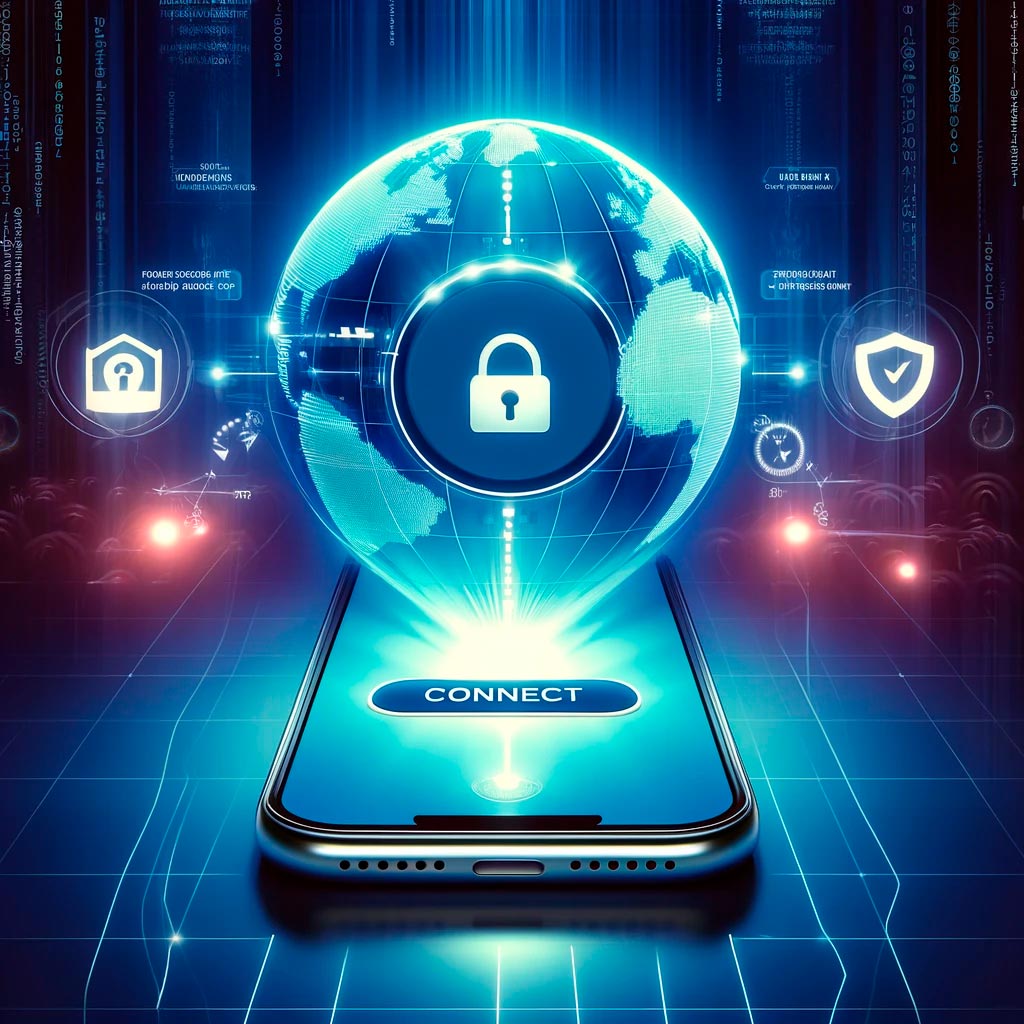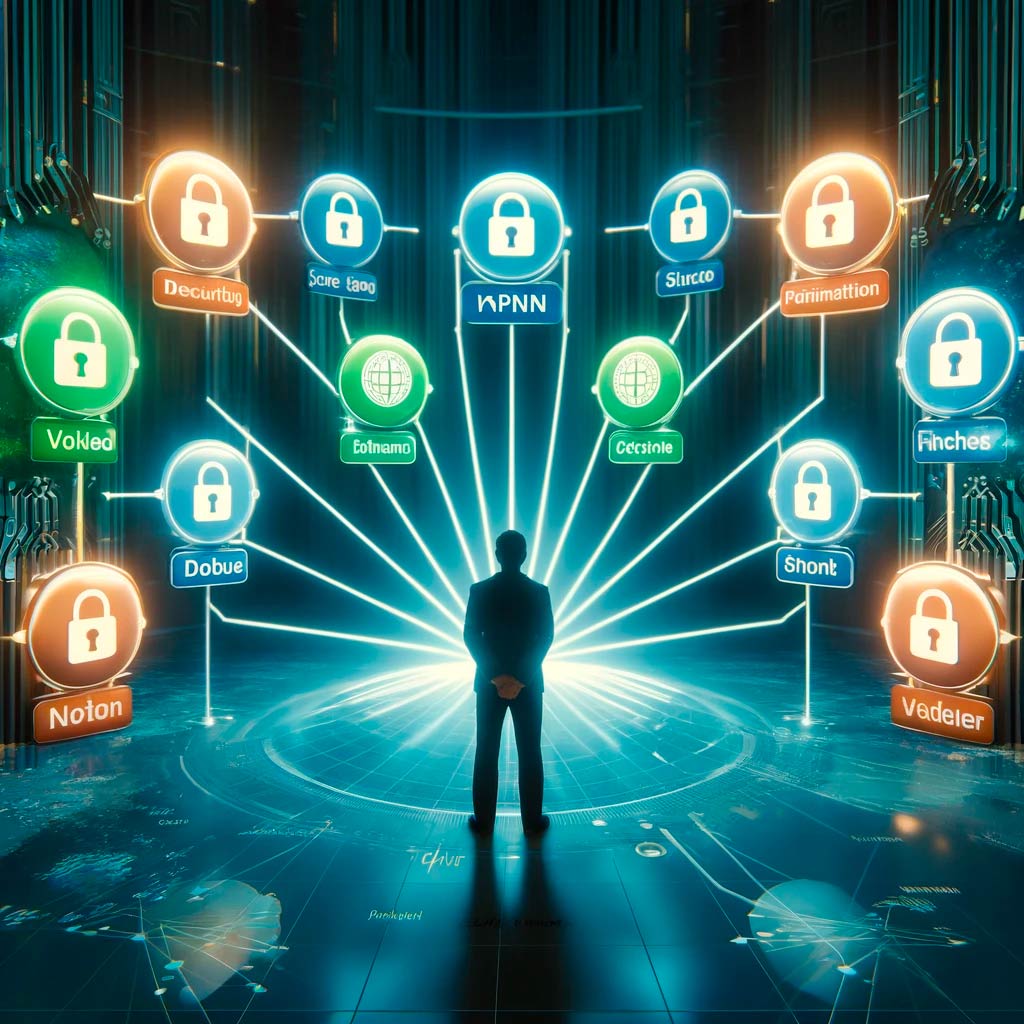Содержание
Using a VPN has become an essential part of securing data on the internet, especially when connecting to unsecured Wi-Fi networks. As cyber threats become more sophisticated, it’s crucial to protect your personal information from potential leaks and hacks. In this article, we will discuss how to choose a reliable VPN for use on public Wi-Fi networks and analyze the legal aspects of VPN use in various countries.
The goal of this article is to provide the reader with all the necessary recommendations for safe VPN use and an understanding of the legal nuances associated with its application.
What is a VPN and How Does It Work?
A VPN (Virtual Private Network) is a technology that allows you to create a secure connection over unsecured networks, such as public Wi-Fi. VPNs redirect internet traffic through encrypted tunnels, making the data invisible to outsiders and protecting it from interception.
Key principles of VPN operation:
- Data encryption
- IP address masking
- Access to geographically restricted content
Criteria for Choosing a VPN for Unsecured Wi-Fi Networks
When selecting a VPN for use on unsecured Wi-Fi networks, it’s important to consider several key criteria to ensure maximum security and convenience. Let’s take a closer look.
Reliability and Security
One of the primary factors when choosing a VPN is its reliability and level of security. This includes the following aspects:
- Data Encryption: Ensure the VPN uses modern, reliable encryption like AES-256, a widely adopted standard considered nearly impervious to hacks.
- VPN Protocols: Pay attention to the protocols used by the VPN service. The most secure are OpenVPN, IKEv2/IPsec, and WireGuard, which offer high levels of protection and connection stability.
- Privacy Policy: Check the provider’s privacy policy. It’s crucial that they do not store logs of user activity, as this could compromise your privacy.
Connection Speed and Stability
When using a VPN on public Wi-Fi, it’s important that the connection remains fast and stable. Otherwise, you might encounter delays and poor internet performance.
- Speed Tests: Before selecting a VPN, review independent speed test results. Some services offer real-time tests to help you evaluate the VPN’s performance.
- Server Network: Check the number and geographical distribution of servers. The more servers and the closer they are to your physical location, the faster the connection will be.
- Connection Stability: Ensure the VPN provides a stable connection without frequent drops, especially when handling important data or streaming video.
Device and Platform Compatibility
Your VPN should be compatible with the various devices and operating systems you use. This ensures all your devices are protected without extra costs.
- Supported Platforms: Check if the VPN supports devices running Windows, macOS, iOS, Android, Linux, and other operating systems.
- Browser Extensions: Some VPNs offer browser extensions (Chrome, Firefox, Edge), which can be convenient for quick traffic protection.
- Simultaneous Connections: Find out how many devices can connect to the VPN at the same time. Many providers allow multiple connections on one account, making it easy to protect all your gadgets.
Privacy Policy and No-Logs Policy
An important aspect of choosing a VPN is its privacy policy and no-logs commitment. This ensures your online activity remains private and inaccessible to third parties.
- No-Logs Policy: Make sure the provider has a strict no-logs policy, meaning your internet activity is not tracked or recorded.
- Transparency: The provider should be transparent about its privacy policy. Read user reviews and independent audits to ensure the service is trustworthy.
- Jurisdiction: Check where the VPN provider is registered. It’s best to choose services based in countries with strong data protection laws, such as Switzerland or Iceland.
Ease of Use and Additional Features
User-friendliness and additional features play a key role in choosing a VPN, as they can simplify setup and day-to-day use.
- Interface: The VPN app should be intuitive and easy to use. Setting up and connecting to servers should take minimal time.
- Additional Features: Look for features like Kill Switch (automatic internet shutdown if the VPN connection drops), Split Tunneling (using VPN only for certain apps), and an ad and tracker blocker.
- Customer Support: It’s important that the provider offers quality customer support, including 24/7 chat, email support, and detailed setup guides.
These criteria will help you choose a reliable and effective VPN to protect your data on unsecured Wi-Fi networks, ensuring maximum security and convenience.

Best VPNs for Protecting Data on Unsecured Wi-Fi Networks
Here are some of the most popular VPNs that have proven themselves in terms of security and reliability:
- ExpressVPN
Pros: High speed, strong encryption, extensive server network.
Cons: Higher cost compared to competitors. - NordVPN
Pros: Strict no-logs policy, double encryption, user-friendly interface.
Cons: Occasional server connection issues. - Surfshark
Pros: Unlimited connections, affordable price, numerous additional features.
Cons: Fewer servers compared to market leaders.
Tips for Using VPN in Public Places
When using a VPN on public Wi-Fi networks, it’s important to follow certain rules:
How to Properly Connect to VPN Before Using Public Wi-Fi
- Always turn on the VPN before connecting to a public network.
- Use VPN automatic connection features.
Best Practices for Ensuring Maximum Security
- Disable automatic connection to unsecured networks.
- Regularly update your VPN software.
- Use two-factor authentication for extra protection.
Common Mistakes When Choosing a VPN and How to Avoid Them
When choosing a VPN, avoid the following common mistakes:
- Neglecting the Privacy Policy: Always ensure the provider does not store logs.
- Ignoring Connection Speed and Stability: Pay attention to reviews and speed tests.
- Overlooking User Reviews and Ratings: Research other users’ experiences before choosing.
Legal Status of VPNs in Different Countries
Laws regarding VPN use vary by country. In some countries, VPNs are fully legal and widely used, while in others, strict limitations exist.

- VPNs in Countries with High Internet Freedom: In countries like the U.S., Canada, and most EU nations, VPN use is legal and widespread.
- Restrictions in Censorship Countries: In China, Iran, and the UAE, VPN use may be restricted or banned, and users may face legal consequences.
- Corporate VPN Use: In business, VPNs are commonly used to protect corporate data and provide remote access to internal company resources.
Legal Risks and Responsibilities When Using VPN
Understanding the legal aspects of VPN use can help avoid potential issues:
- Breaking Local Laws and Possible Consequences: Violating local laws may result in fines or criminal charges.
- Liability for Online Actions via VPN: Users are responsible for their online activity, even when using a VPN.
- Impact of Data Protection Laws on VPN Use: Laws like GDPR may affect VPN use and service provision.
Recent Changes in VPN Legislation in 2024
The legal landscape surrounding VPN use is constantly evolving, and it’s important to stay informed about the latest changes:
- Overview of New Laws and Regulations: New laws may either simplify or complicate VPN use in various countries.
- Impact of Changes on VPN Users and Providers: VPN providers need to adapt to new requirements, and users should keep an eye on legal updates.
Practical Tips for Complying with VPN Legislation
Complying with local laws and regulations is an important part of using a VPN safely:
- How to Choose a VPN That Complies with Local Laws: Research local laws and choose a VPN provider that adheres to these regulations.
- Tips for Using VPN Legally: Use a VPN for legal purposes and stay updated on changing legislation.
Using a VPN on unsecured Wi-Fi networks is a necessary step to protect your data. However, it’s important not only to choose a reliable service but also to understand the legal aspects of its use in your country. By following the recommendations in this article, you can use a VPN safely and legally to protect your information.




Комментарии к статье